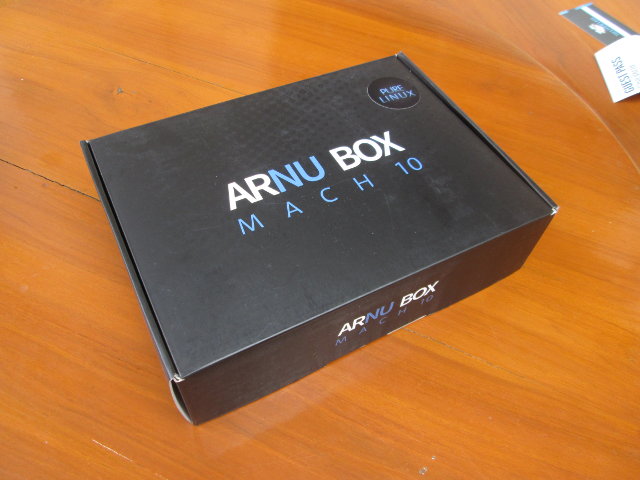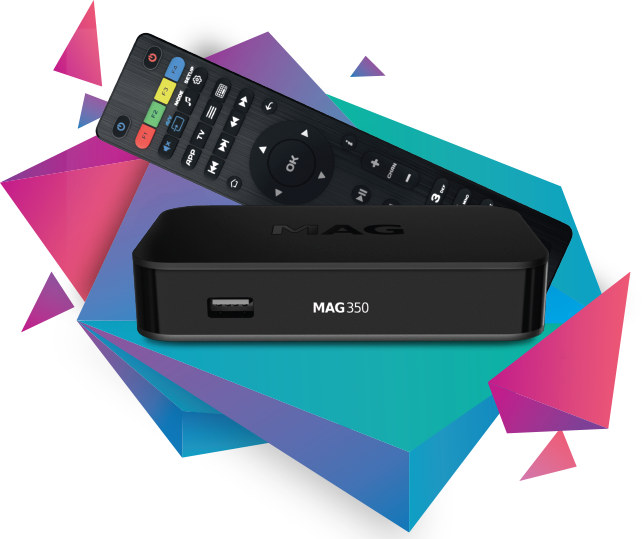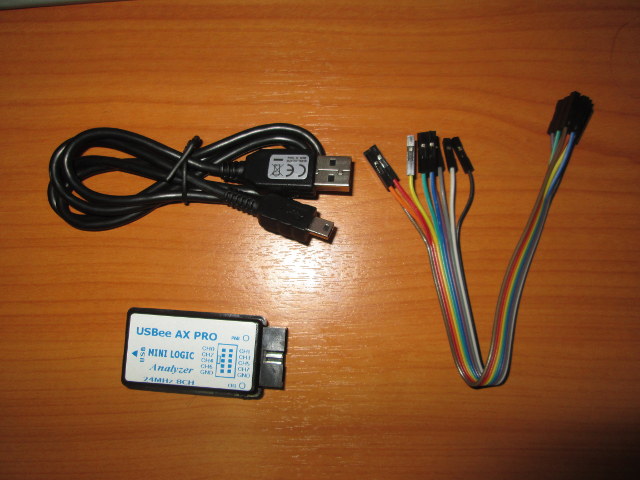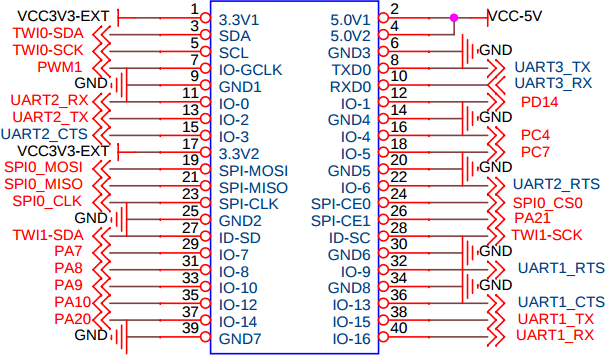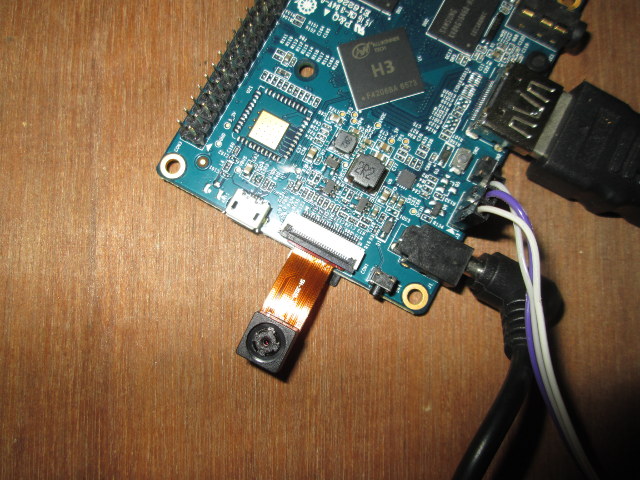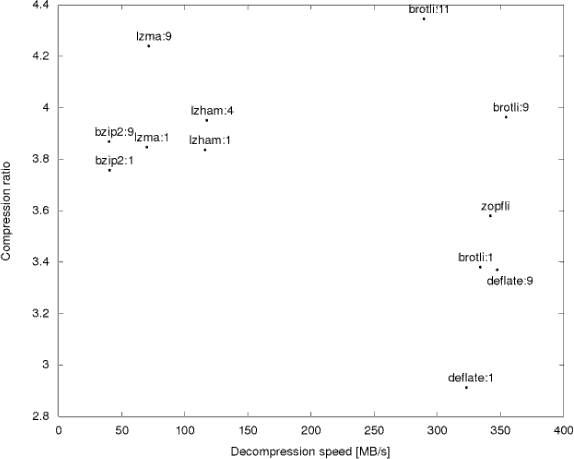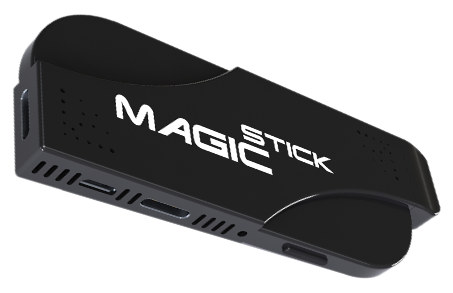Theater in a Box sent me not one – as expected – but two of their latest “Pure Linux” Kodi media player: ARNU Box Mach 10 powered by Amlogic S812 SoC, and ARNU Box Q based on Amlogic S805 processor. The former has a faster processor, and supports 4K, while the later is cheaper but is limited to 1080p. Today, I’ll have a look at the hardware of both devices, starting with ARNU Box Mach 10, before completing the S812 Linux box review in a few days. ARNU Box Mach 10 Specifications The hardware specifications are pretty similar to what the rest of the market is offering: SoC – Amlogic S812 quad core cortex A9r4 @ 2.0 GHz with octa-core Mali-450MP6 GPU System Memory – 2 GB DDR3 Storage – 16 GB flash, SD card slot Connectivity – 10/100M Ethernet, dual band 802.11 b/g/n Wi-Fi, Bluetooth 4.0 (AP6330 wireless module) […]
Infomir MAG Linux & Android Set-top-boxes Feature STMicro or Broadcom Processors, Support Open Source IPTV Solution
Infomir is a group of companies that specializes on the development, design, production and maintenance of equipment and client support for IPTV, OTT and VoD services, with offices in Ukraine and the US. They’ve been selling their Linux based MAG set-top-boxes based on STMicro STB SoC for a little while, and their upcoming model include either STMicro or Broadcom processor, and have support for “Stalker” open source IPTV middleware that allow their customers to setup their own IPTV services for thousands of clients. Their upcoming MAG products fit into three categories: Basic IPTV set-top boxes (no tuner) MAG257 – STMicro STiH301 single core Cortex A9 processor @ 1.5GHz with 512 MB RAM, 512MB storage, USB 2.0 & 3.0 ports, Ethernet, HDMI 1.4. The box runs Linux, and supports HEVC decoding up to 1080p. Hybrid set-top boxes MAG277 – STMicro STiH301 single core Cortex A9 processor @ 1.6GHz with 1 GB […]
Using USB123 USBee AX Pro $5 USB Logic Analyzer with PulseView in Linux
I recently wrote about an ultra low cost USB logic analyzer called USB123 USBee AX Pro, which I bought for $9.58 on DX, but I was later informed it also goes for $5.44 on Aliexpress including free shipping to most countries, and a few dollars extra for shipping to some other countries. Nevertheless, I’ve now received it, and instead of testing it with a closed source (and cracked) Windows software, I installed and ran PulseView open source graphical interface for sigrok, which I previously tested on UNI-T UT61E digital multimeter. The package includes USBee AX PRO mini logic analyzer, 10 dupont wires for 8 channels (digital only) and 2 ground pins, as well as a mini USB to USB cable for connection to a computer. The instructions to use the logic analyzer can be found on Sigrok Wiki. My computer runs Ubuntu 14.04, but Sigrok and PulseView can also be […]
Status of Orange Pi Boards GPIO Support
Yesterday, one person asked me to make a video showing GPIO control on Orange Pi 2 mini on YouTube, and since I have just completed a post about Orange Pi camera, I thought it might be fun to check GPIO support too. This post focuses on Allwinner H3 boards, but the instructions and status should be very similar for Allwinner A20 and A31s versions. One of the first things you want before starting playing with GPIOs is the expansion header’s pinout chart, and I could not find any until I had the idea to check for schematics, which are available on Orange Pi resources page. I downloaded the schematics for Orange Pi 2, which should be the same as for Orange Pi 2 mini as the only difference is the lack of WiFi module. Orange Pi PC is a little different, and the schematics are nowhere to be found, but […]
How to Use Orange Pi Camera in Linux (with Motion)
Earlier this month, I wrote a Quick Start Guide for Orange Pi Allwinner H3 boards such as Orange Pi PC, and showed how to install and configure Debian on the boards. I’ve also received the $5.90 Orange Pi camera, which when combined an Orange Pi PC, costs around $27 including shipping. So today, I’ve attached the CSI camera to my Orange Pi 2 mini board, and used it with motion to transform for the board into an IP camera. First, you’ll need to insert the camera into CON1 connector with the camera facing the ceiling, and close the black clip to keep it in place. Now connect all cable and power on your board. First, I studied the steps described on that forum thread, and modified Allwinner configuration files, but after one or two hours, I found out some work at been done since May, and it was now much […]
Linux Kernel Mainline Status of Mobile SoCs Presentation at Linaro Connect SF015
Linaro Connect San Francisco 2015 is taking place this week, and several 96Boards have been presented including LeMaker Hikey and Qualcomm DragonBoard 410c, both of which will finally be available by the end of the year. But there are also many technical presentation and discussions that are uploaded to LinaroOnAir Youtube account, and they’ve greatly improved video and audio quality compared to the past, with presentation slides also available on Slideshare. I’ve just watched one of the session entitled “Kernel Mainline Status of Mobile Chipsets” by Tim Bird, Sony Mobile. Also the talk focus on mobile SoC, it’s also relevant to other consumer electronics products, and some embedded systems. The presentation states the extend of the issues, shares comparisons between the vendor device tree and mainline, and explains how developers can participate, with the talk ending with a discussion within the group of attendees. Here’s a summary of some of […]
Brotli Compression Algorithm Combines High Compression Ratio, and Fast Decompression
After Zopfli, Google has now announced and released Brotli, a new compression algorithm to make the web faster, with a ratio compression similar to LZMA, but a much faster decompression, making it ideal for low power mobile devices. Contrary to Zopfli that is deflate compatible, Brotli is a complete new format, and combines “2nd order context modeling, re-use of entropy codes, larger memory window of past data and joint distribution codes” to achieve higher compression ratios. Google published some benchmark results comparing Brotli to other common algorithms. Since the company aims to make the web faster, the target is to decrease both downloading time (high compression ratio), and rendering time (fast decompression speed), and Brotli with a quality set to 11 is much better than competitor once both parameters are taken into account. As you’d expect the source code can also be pulled from Github. So I gave it a […]
MagicStick TV Sticks Powered by Intel Atom x5 or x7 Processors Feature up to 8GB RAM, HDMI 2.0, 802.11ac… (Crowdfunding)
Several Cherry Trail Atom x5 MegooPad TV sticks are on the way, but they mostly have similar specs to the previous generation Bay Trail sticks, except with a slightly faster processor, and in some models, USB 3.0 support. An Indian company is currently developing some Cherry Trail TV sticks with impressive specifications including processors such as Intel Atom x7-Z8700, up to 8GB RAM, up to 64GB storage, 802.11ac connections, HDMI 2.0, and USB 3.1 type-C connector. These products are called MagicSticks, and three models will soon be available. [Update 30/9/2015: The indiegogo campaign is up, but the Wave is not shown, and instead MagicStick Power has been renamed to Wave, changes are reflected in the table below] MagicStick One MagicStick Wave MagicStick Power Wave Processor Intel Atom x5-Z8300 processor up to 1.83 GHz, with 12 core Gen8 GPU Intel Atom x5-Z8500 processor up to 2.24 GHz, with 12 core Gen8 […]


